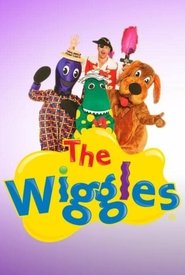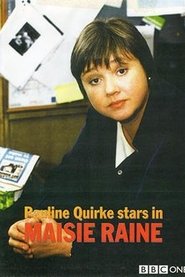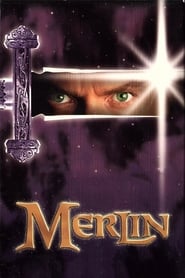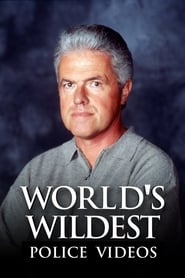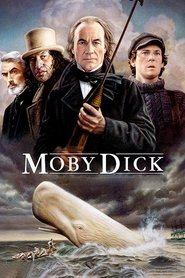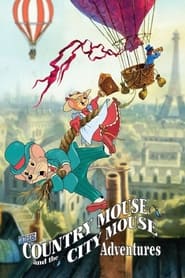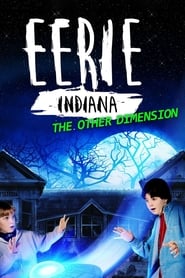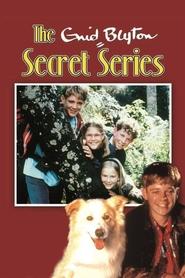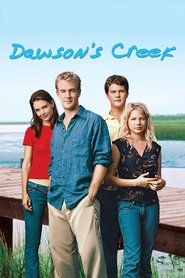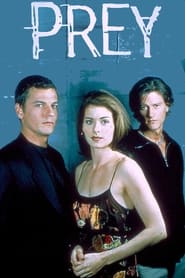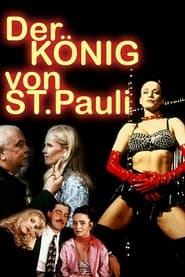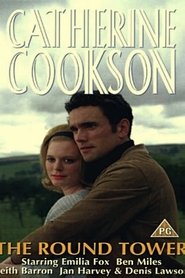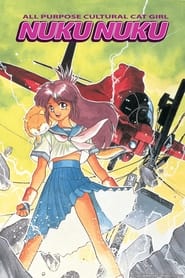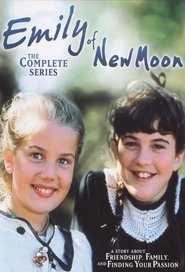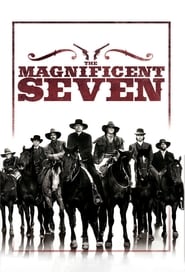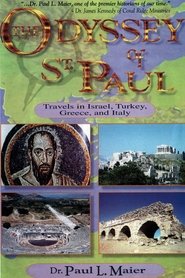New Talk TV Series on Free Services - Page 312
-
The Wiggles
1998
The Wiggles
1998
star 6.1A show geared for babies up to older toddlers. This show is full of music, teaching kids songs and easy dances. -
Maisie Raine
1998
Maisie Raine
1998
Maisie Raine was a drama series originally broadcast on BBC1 for 2 series from 28 July 1998 – 9 July 1999. Pauline Quirke took the lead role as DI Maisie Raine, an unorthodox detective whose hands on and down to earth approach was not always appreciated by her superiors. When she took on a case, she did it her way, regardless of whose toes she stepped on and who she offended. Each episode would see the team investigating a crime and often uncovering more about the perpetrators and the victims histories with DI Raine often becoming personally involved or bending the rules to get the results she wanted. Also starring alongside Quirke were Ian McElhinney, Steve John Shepherd, Rakie Ayola and Richard Graham. -
SeaChange
1998
SeaChange
1998
star 7.8SeaChange is a popular Australian television show that ran for 39 episodes from 1998 to 2000 on the ABC. It was created by Andrew Knight and Deborah Cox and starred Sigrid Thornton, David Wenham, William McInnes, John Howard, Tom Long and Kerry Armstrong. The director was Michael Carson. Filming was based at Barwon Heads, Victoria and St Leonards, Victoria, both locations being on the Bellarine Peninsula. A number of streets in the St Leonards Sea Change Estate have since been named to acknowledge some of the characters of the series. Many scenes were also filmed in Williamstown, including the exterior of the Williamstown Life Saving Club, which became the court house of Pearl Bay. -
Merlin
1998
Merlin
1998
star 6.9A retelling of the legend of King Arthur from the perspective of the wizard Merlin. Sam Neill stars in the title role in a story that covers not only the rise and fall of Camelot but also the phase in the legendary history of Britain that precedes it. -
Real Kids, Real Adventures
1998
star 7Electrifying true stories and remarkable acts of bravery and heroism of real kids who find themselves in harrowing situations. From a twelve-year-old girl who fights off a shark to an 18-year-old who overcomes his fear of heights to rescue a little girl dangling from a chair lift. -
World's Wildest Police Videos
1998
star 7An American reality TV series that deals with police videos from across the world. Video footage of car chases, subsequent arrests, robberies, riots and other crimes appears on the show. -
Moby Dick
1998
Moby Dick
1998
star 5.9The sole survivor of a lost whaling ship relates the tale of his captain's self-destructive obsession to hunt the white whale, Moby Dick. -
The Country Mouse and the City Mouse Adventures
1998
star 7.7Follow mice Emily and her cousin Alexander as they go on adventures around the world in the early 20th century, usually to stop the evil rat No-Tail No-Goodnik. -
Eerie, Indiana: The Other Dimension
1998
star 7.3A new mystery begins for two young boys in the seemingly ordinary town of Eerie, Indiana as they experience strange and interesting phenomena. -
Mortimer's Law
1998
Mortimer's Law
1998
Successful London barrister Rachel Mortimer returns home to her Welsh roots taking up a post as Coroner of the Welsh marches. -
Heat of the Sun
1998
Heat of the Sun
1998
star 5.3Heat of the Sun is a police drama set in 1930s Kenya produced by Carlton Productions. Starring Trevor Eve as Superintendent Albert Tyburn, a Scotland Yard officer sent to Nairobi after a shooting, the show focuses on the seedier side of the expatriate community in Kenya. It began airing in January 1998 in the UK and was broadcast in the United States in 1999 as part of Mystery!. -
Dawson's Creek
1998
Dawson's Creek
1998
star 7.3Dawson's Creek is an American teen drama that portrays the fictional lives of a close-knit group of teenagers through high school and college. -
Prey
1998
Prey
1998
star 6.8Bio-anthropologist, Dr. Sloan Parker, her colleague, Dr. Ed Tate, their associate Tom Daniels, and their friends, discover and investigate a secret new dominant humanoid species which is looking for a way to replace humans… PREY was a science-fiction television series that aired for one season in 1998 on ABC. The series starred Debra Messing, Adam Storke, Larry Drake, Frankie Faison, James Morrison, and Vincent Ventresca. -
Der König von St. Pauli
1998
star 7Rudi, who operates a striptease club in St Pauli, incurs immense gambling debts. The situation gets worse when his rival Graf, a fishmonger, enters the scene. -
The Round Tower
1998
The Round Tower
1998
The poor son of a house maid is determined to find success and win the love of Vanessa, the daughter of a wealthy family who is alienated by her social-climbing parents. -
All Purpose Cultural Cat Girl Nuku Nuku (TV)
1998
star 7When Natsume Atsuko, nicknamed Nuku Nuku, comes to live with Ryounosuke's family, he falls in love instantly. After all, to all appearances, she's a beautiful, normal - if slightly ditzy - teenage girl. In reality, however, she's an all-purpose cat-brained andorobot who's escaped from Mishima Heavy Industries' research laboratories. She's not supposed to use her special powers, but when more of Mishima's experiments run amuck and her friends are threatened, she'll do whatever she can to save them. It's never just another day at school when your classmate's an All Purpose Cultural Cat Girl! -
Emily of New Moon
1998
Emily of New Moon
1998
star 8.8Emily of New Moon is a Canadian television series, which aired on CBC Television from 1998 to 2000. The series originally aired in the United States on the Cookie Jar Toons block on This TV and it is currently seen in Canada on the Viva, Bravo! and Vision TV cable channels. The series, produced by Salter Street Films, was based on the Emily of New Moon series of novels by Lucy Maud Montgomery. The series consisted of three seasons of thirteen episodes and one season of seven episodes, for a total of forty-six. The executive producers were Micheline Charest, Michael Donovan, and Ronald Weinberg. The series starred Martha MacIsaac as the titular orphan Emily Starr. Susan Clark and Sheila McCarthy played Emily's aunts Elizabeth and Laura, who had taken on the responsibility of raising Emily following her father's death, and Stephen McHattie played her cousin Jimmy. Susan Clark left the series after the first season when her character, Elizabeth, was killed off. Recurring cast included Chip Ciupka as Mr. Carpenter, P -
The Magnificent Seven
1998
star 6The Magnificent Seven is an American western television series based on the 1960 movie, which is a remake of the Japanese film Seven Samurai. It aired between 1998 and 2000. It was filmed in Newhall, California. The pilot, scripted by Chris Black and Frank Q. Dobbs, was filmed in Mescal, Arizona and the Dragoon Mountains of Arizona, near Tombstone. Robert Vaughn, who had starred in the original 1960 movie, frequently guest-starred as a crusading judge. -
The Odyssey of St. Paul
1998
Aside from Jesus himself, no one has had a greater influence on the founding of Christianity than Paul of Tarsus. Among his many achievements, three are of prime importance: 1) as a powerful, tireless missionary, he spread the faith to Asia Minor, Greece, and Italy; 2) his letters, which form much of the New Testament, present a basic theology for Christianity; and 3) more than anyone else, he brought Gentiles into the early church, not only Jews, thus 'universalizing' the faith.
 Netflix
Netflix
 Amazon Prime Video
Amazon Prime Video
 Apple iTunes
Apple iTunes
 Apple TV Plus
Apple TV Plus
 Disney Plus
Disney Plus
 Google Play Movies
Google Play Movies
 Paramount Plus
Paramount Plus
 Hulu
Hulu
 HBO Max
HBO Max
 YouTube
YouTube
 fuboTV
fuboTV
 Peacock
Peacock
 Peacock Premium
Peacock Premium
 Amazon Video
Amazon Video
 The Roku Channel
The Roku Channel
 AMC+
AMC+
 Kocowa
Kocowa
 Hoopla
Hoopla
 The CW
The CW
 Vudu
Vudu
 Starz
Starz
 Showtime
Showtime
 PBS
PBS
 Pantaflix
Pantaflix
 FXNow
FXNow
 Tubi TV
Tubi TV
 Kanopy
Kanopy
 Comedy Central
Comedy Central
 Crunchyroll
Crunchyroll
 Microsoft Store
Microsoft Store
 Redbox
Redbox
 Sun Nxt
Sun Nxt
 ABC
ABC
 DIRECTV
DIRECTV
 Crackle
Crackle
 Fandor
Fandor
 Plex
Plex
